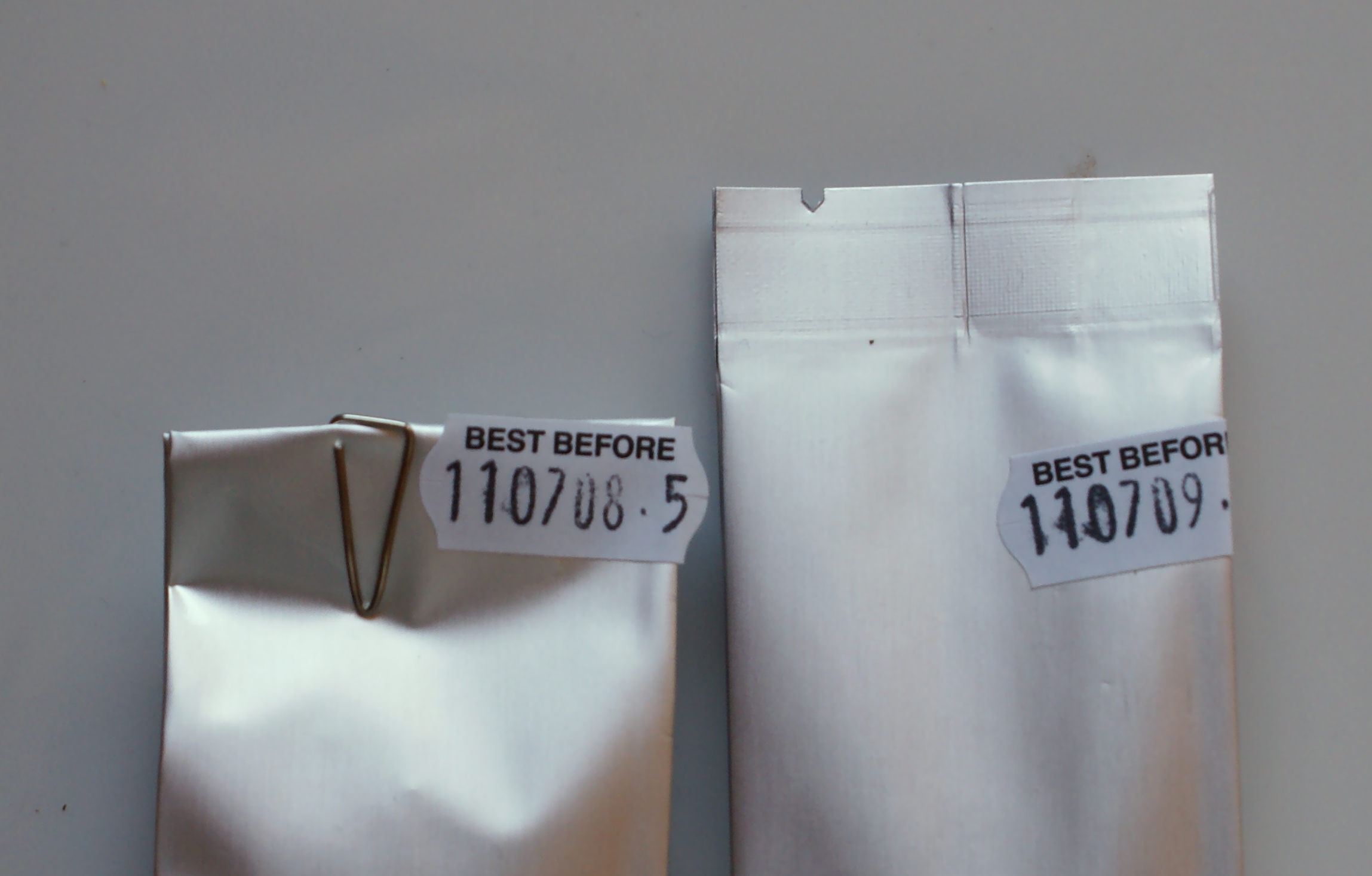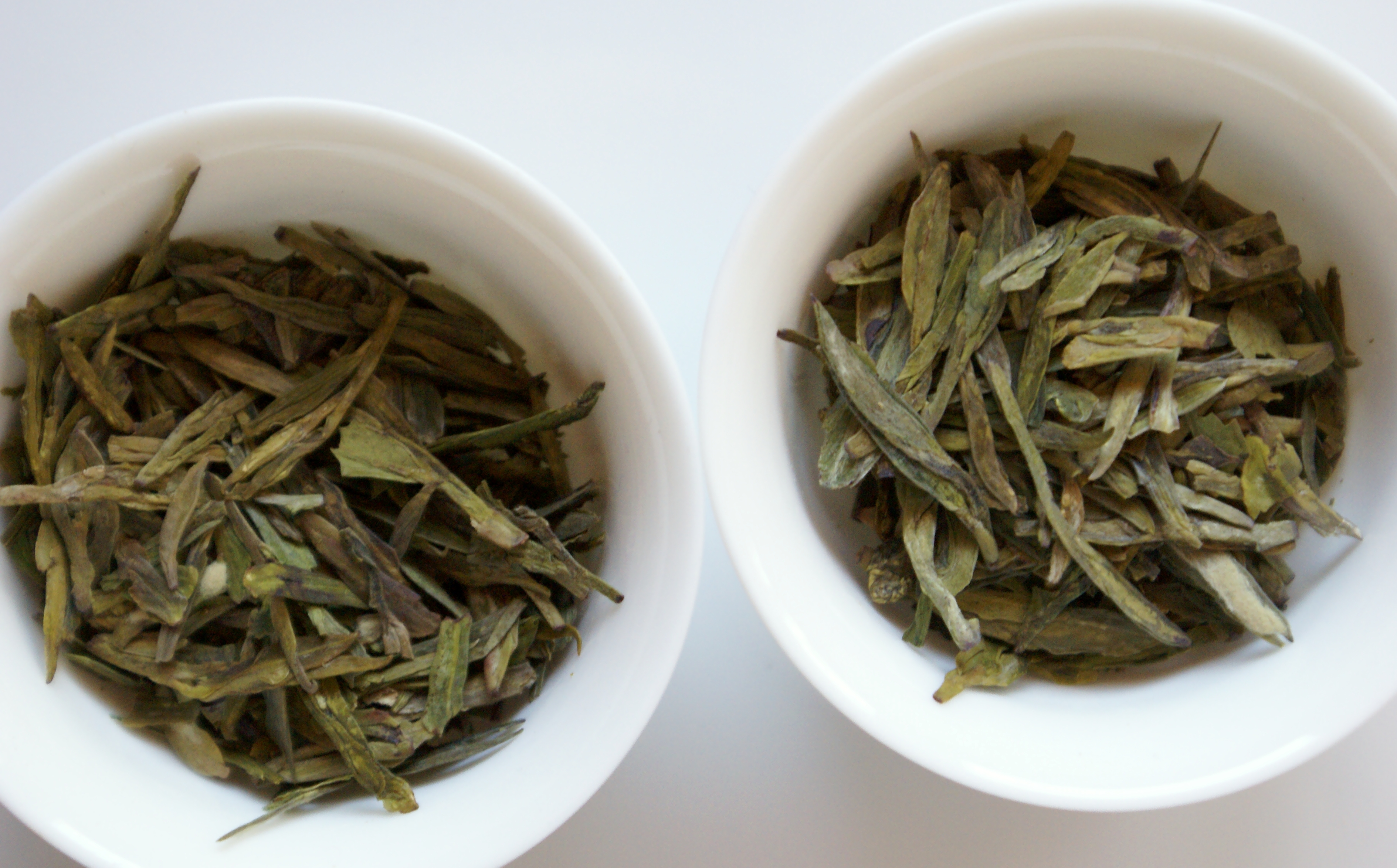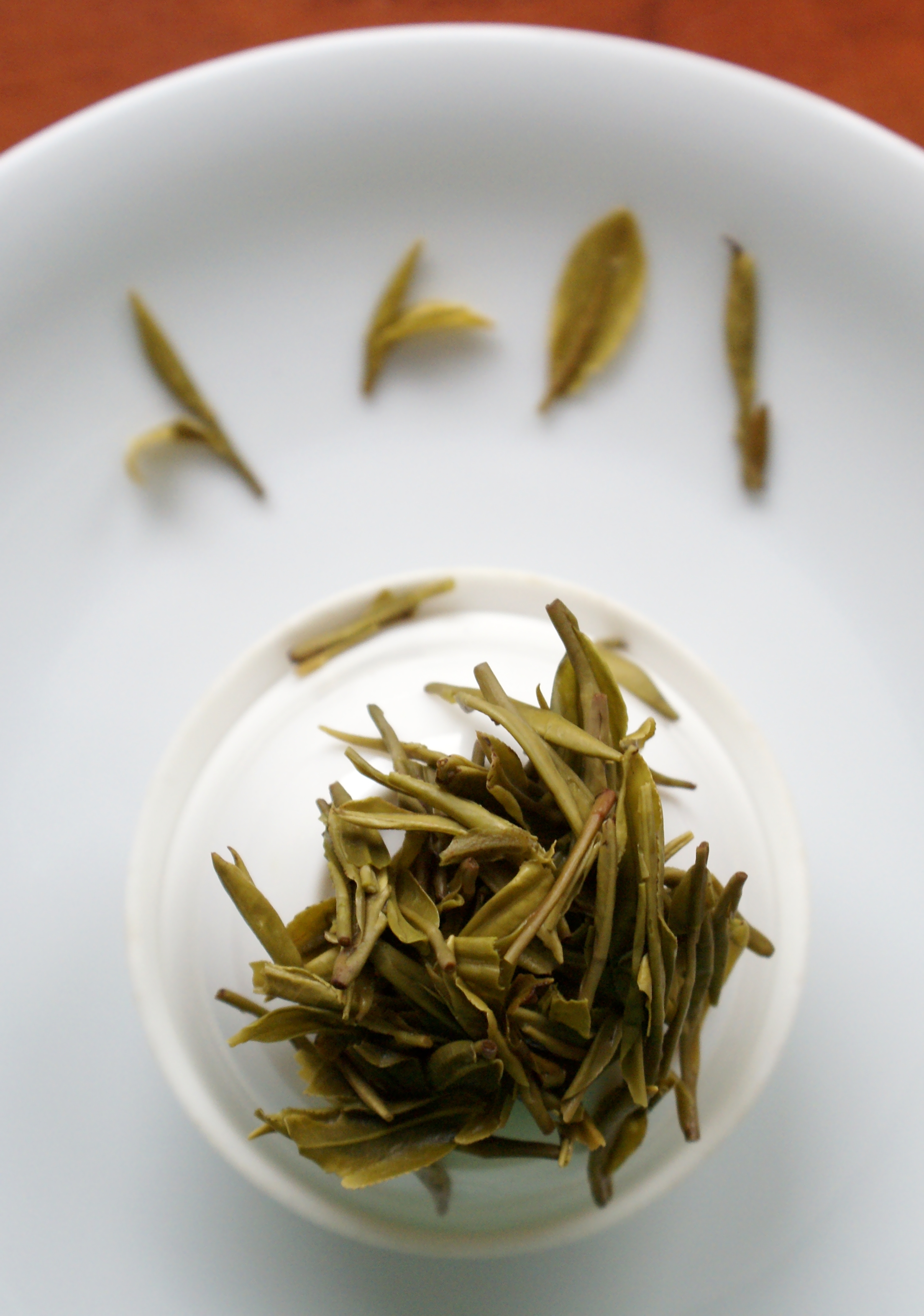When a day makes a difference
Posted on 10 March 2011
After my lukewarm review of Eastteas’ Vietnam Green, here’s another look at a tea from the same source: the 2010 Supreme Longjing. And in contrast to that neither-fish-nor-fowl green/puer, this tea is mindblowingly fine. It could be the best Longjing that I ever sampled.
In fact it’s two different teas. Master Luo in the Chinese province of Zhejiang harvested these leaves from old remote trees on two different days: 8th and 9th April 2010.

The packaging of tea is so much less romantic than that of wine. Imagine a photo of two vintages of Krug...
I don’t know about tea, but in the world of wine one day is unlikely to make a major difference. Yes, fine wine is intricately linked to good timing: harvest, fermentation, oak ageing are all decisions that need to made with exactitude; some macerations are as short as a few hours, and foot-treading grapes for port for an hour too long or delaying the addition of sulphites by a day can effectively spoil your wine. The precise time of deleafing a vineyard can have a tangible effect on the bouquet of your wine if it happens to be Riesling. But at harvest time, one day is just about the smallest measure of time, resulting in minor differences. Ghislaine Barthod, whose 2009 red burgundies I recently praised, picked her grapes three days earlier than other growers in the village of Chambolle-Musigny, resulting in palpably more freshness and finesse in that hot vintage. Had she picked one day earlier, the difference would have been subtle.
I have no idea whether any extraordinary events of meteorology or entomology or perhaps human psychology separated Thursday 8th from Friday 9th April in Zhejiang, but the truth is in the cup. The leaves of both batches are quite lovely: a pastel light emerald green and well-handled. I’d lie if I said they look any different one from another, and the very minor difference in smell might well be the power of suggestion: 8th Apr shows very elegant roast with a freshly baked bread character while 9th Apr seems a bit more herby and hay-like.
The first infusion is also vastly similar, in fact. I brewed these teas very concentrated – 3g for 50ml of water at 70C – to magnify the potential divergences, but they’re both showing a similar profile of crystal-clear green pea and asparagus aroma, followed by minor green apple and a pure, even flavour on the palate. There’s no astringency, a mild hint of aminoacidic umami underneath the herbs and apple, and brilliant balance.
The curious thing happens in the second and third brew. Usually with this brewing regime these are less exciting: the first infusion is so concentrated that the later ones are necessarily pale and low-key. It’s what happened to 8th April here. The second brew is a nice echo of the former clean sweetness, but it’s closer to water than recognisable Longjing. Surprisingly, 9th April holds considerable better – and it can’t be just a matter of suggestion. In fact even the third brew reveals a punchy bitterness that is totally at odds with the initial impression of the first brew. For a reason that I’ll probably never learn, picked one day later than its sibling, this tea packs in a lot more power. Amazing.
The next day I brewed 8th April in a more relaxed, less analytical way. More water, less hyperconcentration, more drinkability. The dominant characteristic is purity. There are again peas, asparagus, hay, green apple, there might even be a bit of the elusive chestnut aroma of the best Longjings. But all these scents are rendered with supreme focus, like on a bright April morning after an early spring rain. The top grades of Longjing are often elegant at the expense of intensity. Here, although at all moments it is a subtle, aristocratic tea, there’s never weakness: the intensity, the presence, the stature are outstanding. It’s all in such a balance that even the very long finish is not a distracting show-stealer but a logical consequence, like the cadenza of a Beethoven piano concerto. A truly great tea.
Source of tea: own purchase.



